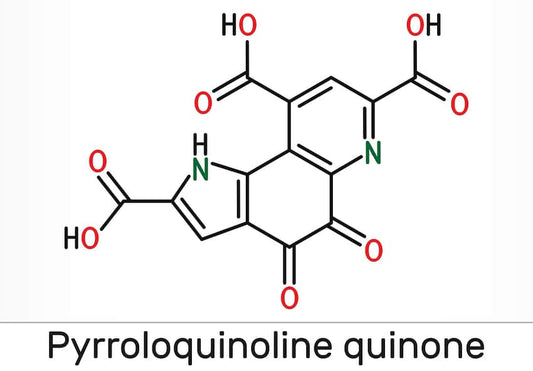Have you ever woken up from a night’s sleep feeling just as tired as you were when you fell asleep? Or do you get back to your desk post-lunch feeling sluggish, in desperate need of a nap?
While you may assume you just didn’t sleep well, or you may just need to reach for cup after cup of coffee to help increase your energy, the answer could lie in your nutritional intake.
Some vitamins play major roles in how much energy and fatigue you experience, and if you are deficient in any of the vitamins listed below, it may be the explanation behind your constant tiredness and fatigue!
8 Vitamins for Energy & Tiredness
1. Vitamin B1
Most of these energy-enhancing vitamins are going to be B-vitamins. While B-vitamins don’t actively provide you with energy on their own, they all work in different ways to assist the enzymes in your body that do work to actively provide you energy.1
Vitamin B1 is also called thiamine, and it is an essential vitamin that most of our organs need. It helps give us energy by participating in the process that takes carbohydrates and sugars and converts them to energy. B1 is found in fish, seeds, nuts, and asparagus.
2. Vitamin B2
B2 is found in almonds, wild rice, and mushrooms. It aids in the breakdown of carbohydrates into fuel. Carbs are your body's preferred source of energy, so ensuring you have adequate levels of B-vitamins will ensure this fuel is broken down and used efficiently.
3. Vitamin B6
This vitamin is another that doesn’t directly give you energy itself but helps assist in energy production. B6 is needed for your body to produce serotonin and dopamine.2
These two hormones help to regulate your mood and de-stress you, leaving you feeling less fatigued and more energized. B6 also helps produce red blood cells that carry oxygen to all the cells in your body, further supporting energy levels.3
B6 is found in fish, potatoes, and bananas.
4. Vitamin B9
B9, more commonly known as folic acid, is especially important for females and pregnant women. A lack of B9 is thought to be one of the causes of anemia.
Anemia occurs when the level of the vitamin/mineral is deficient for an extended period, leaving you feeling weak and tired all the time. B9 is found in food such as beans, spinach, and avocado
5. Vitamin B12
Like B2, B12 helps you break down carbohydrates and protein for your body to use for energy. B12 is another vitamin that you can get anemia from if you are deficient in it. B12 anemia will make you feel weak and tired, regardless of how much sleep or caffeine you consume. B12 is found in fish, animal meat, and dairy products. Products like cereal and bread are often fortified with B12 as well.
6. Vitamin C
Not just the B vitamins participate in energy production, but vitamin C also helps. Vitamin C’s biggest function is immune support due to its potent antioxidant properties, which help our bodies fight bacteria that we come into contact with.
This is why vitamin C is good for energy as well, if your body can spend less energy fighting off bad bacteria, you’ll have more energy for normal daily functions. Vitamin C is mainly found in citrus fruits and green vegetables.
7. Vitamin D
Of all the vitamins on this list, vitamin D is the one people are most commonly deficient in. Vitamin D deficiency can leave you feeling emotionally and physically tired.
Many foods are fortified with vitamin D including cereal, milk, and orange juice. Its also found in fish and dairy products. Vitamin D also comes from the sun!
Spending at least 20 minutes a day outside in the sun allows your body to absorb the rays. Our body then converts it to vitamin D for your body to use to protect your bones, give you energy, and help your muscles recover post-workout.
8. Vitamin A
Research has shown that vitamin A plays an important role in energy production and skin aging.3 Vitamin A helps all cells in your body function at their best.
A deficiency of vitamin A can cause your cells to run slowly, therefore making you tired. This is because your cells need the enzyme ATP to function, and without it, their energy decreases to dangerous levels.
Vitamin A is needed to produce ATP fast enough to keep up with how fast the cells are using them.
Conclusions
While all these vitamins are needed for energy production, there is no magic pill that you can take that will fix all your energy-related problems.
If you are experiencing chronic low energy or fatigue, the best place to start is to talk to your doctor and see if you are deficient in any of these vitamins. If you aren’t deficient, there are still things you can do to increase your energy levels.
To start, try taking a daily energy supplement or multivitamin so that you make sure your vitamin levels are at optimal levels, keeping your energy maintained without the need for caffeine or stimulants.
Our top pick is Performance Lab Energy. This daily pill boosts mental vitality and exercise intensity for clean, jitter-free, crash-free energy.
There is no caffeine in it, so you won’t experience that post-caffeine crash and headache like with other energy supplements. It can also be taken an hour before a workout for a boost of energy to help performance.
Though, the best recommendation is to focus on healthy lifestyle changes. Eating healthier and exercising regularly can help your energy levels increase and help decrease overall fatigue.
Reducing your intake of highly processed foods, as well as incorporating healthier foods, and exercising a few times a week can be great places to start your journey to more energy and less fatigue!
References
- Campbell. Macronutrients, minerals, vitamins and energy. Anaesthia & Medicine. 2017;18)3):141-146.
- Huskisson E, Maggini S, Ruf M. The Role of Vitamins and Minerals in Energy Metabolism and Well-Being. Journal of International Medical Research. 2007:277-289.
- Tardy A-L, Pouteau E, Marquez D, Yilmaz C, Scholey A. Vitamins and Minerals for Energy, Fatigue and Cognition: A Narrative Review of the Biochemical and Clinical Evidence. Nutrients. 2020; 12(1):228















